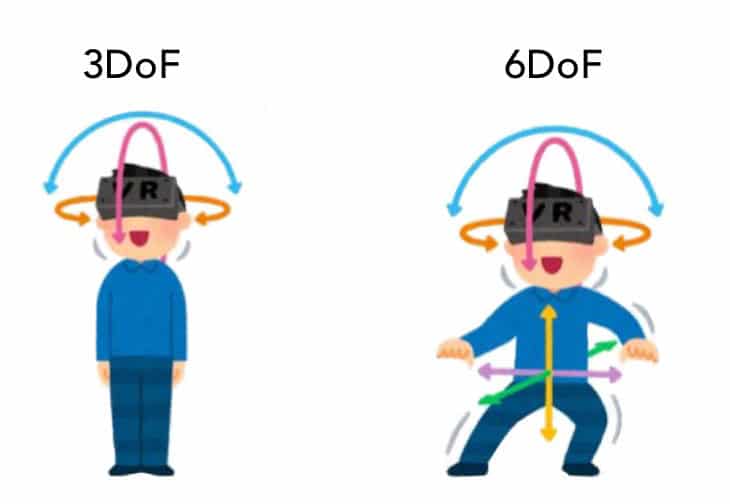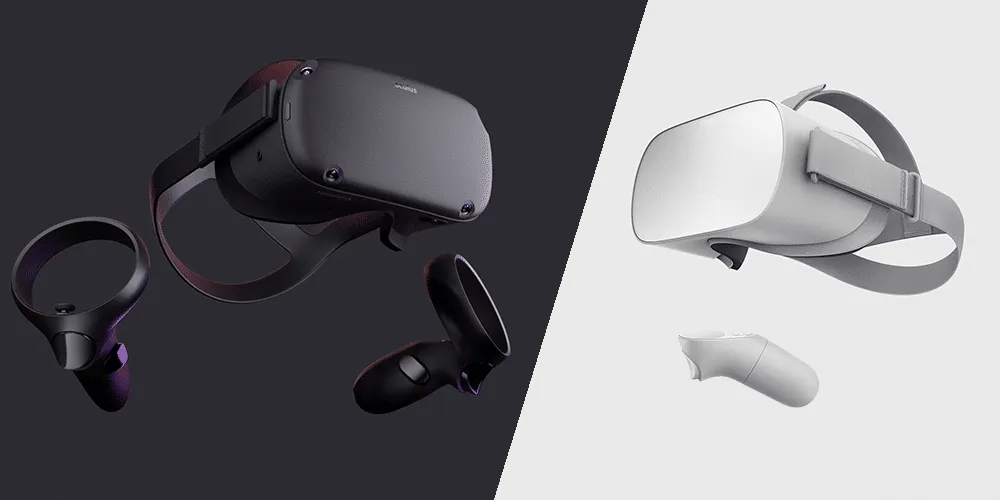After the closed beta of its new enterprise VR platform Facebook withdrew the lower end Oculus Go, leaving only the higher end Oculus Quest as an option.
The new Oculus for Business platform was first announced at F8 2019 back in May, with full details shared at Oculus Connect 6 in September.
Under the program, companies can buy Oculus all-in-one headsets with a special version of the operating system which supports multiple device setup, remote device management, a kiosk mode, and other business-oriented features. The consumer features like the games store are not present in the headset, replaced by a simplified launcher showing only the apps remotely installed.
The Oculus Quest is available under this program for $999. This pricing includes two years of enterprise-grade priority support via phone, live chat or email.
But at both F8 2019 and Oculus Connect 6, Oculus Go was also listed as available under this platform, for $599. The website offered a comparison of the Quest and Go headset specifications. However, as of writing, Quest is now the only headset listed under this program.
The last entry of the page’s FAQ addresses this change:
Why am I no longer seeing Oculus Go as part of the Oculus for Business platform?
As we’ve been developing and testing the platform based on key use cases for enterprise customers, it’s become clear that Oculus Quest with its high end graphics and fully immersive capabilities is the best solution for most business VR needs. We’ve decided to focus our efforts on developing the platform based on Quest features and functionality. Go remains popular for immersive media and with its affordable price point, it’s a great option for companies that are getting started with VR. We will offer Go with an enterprise license which allows for commercial use and includes enterprise warranty and support, but without the Oculus for Business enterprise software
We reached out to Facebook to ask if this withdrawal happened before the program launched, and whether any Go headsets were sold for the platform. A representative told us that Go was withdrawn after the closed beta, and that “for the small number of impacted customers we are partnering on various solutions that include transitioning them to Quest“.
3DoF Just Isn’t Good Enough Anymore
The Oculus Go has a major limitation that no other major VR headset has; it can only track the rotation of your head, not the position. This means the world feels locked to your head when you lean forward, backward, or to the side. This isn’t particularly comfortable and can make some people feel sick.

The controller (and there is only one, not two) also has the same limitation. This means it acts as more of a laser pointer than actually having your hands in VR.
This is likely what Facebook’s FAQ answer is referring to when mentioning Quest’s “fully immersive capabilities”. Unlike Go, Quest has positional tracking and two positionally tracked controllers. This would greatly expand the kinds of scenarios Quest can simulate or train for in VR.
With Go withdrawn from the new enterprise platform and the consumer version being cut to $150 without an announcement, it seems possible Facebook could be planning to retire the headset. Facebook also retired its Rooms social service on Go late last year and only says it will support its upcoming Horizon social networking service on the Rift Platform and Quest, saying that “full interactivity is core to the Facebook Horizon experience.” Assuming no other companies launch a 3DoF headset, that could finally mark the end of 3DoF consumer VR.






























